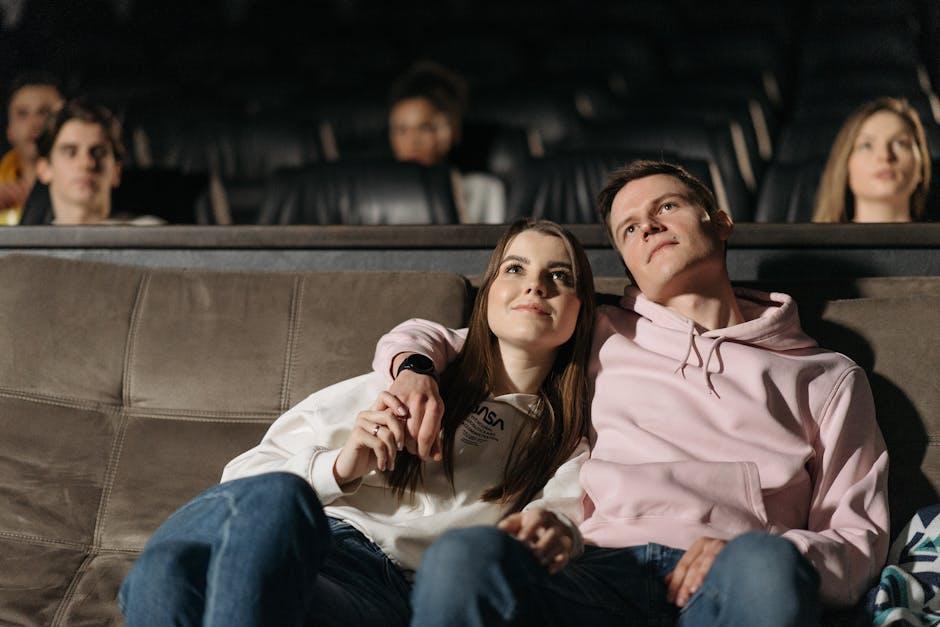In the realm of cinematic storytelling, romance movies have long held a cherished place, captivating audiences with tales of love, passion, and idealized relationships. These films, often characterized by their emotionally charged narratives and picturesque portrayals of romance, have the power to influence perceptions and expectations about love and relationships. However, as these narratives continue to dominate screens worldwide, a critical examination emerges: Are romance movies perpetuating unrealistic expectations about relationships? This article delves into the potential implications of these cinematic portrayals, exploring how they might shape viewers’ understanding of romance and whether they contribute to a skewed perception of what constitutes a healthy and sustainable relationship. Through an analytical lens, we will investigate the common tropes and themes prevalent in romance films, assessing their impact on societal norms and individual expectations, while considering the broader cultural context in which these movies are consumed.
Portrayal of Relationships in Romance Films
Romance films often craft narratives that captivate audiences with their enchanting portrayal of relationships. These cinematic tales frequently highlight the idealized version of love, characterized by grand gestures, serendipitous encounters, and the notion of soulmates. However, this portrayal can sometimes diverge from reality, creating a landscape where expectations are heightened and real-life relationships are unfavorably compared.
- Overemphasis on Perfection: Many romance films depict partners who seem flawless, often glossing over the complexities and imperfections that are inherent in real relationships.
- Instantaneous Connections: The concept of “love at first sight” is a recurring theme, suggesting that deep, meaningful connections can be formed instantly without the gradual process of getting to know one another.
- Conflict Resolution: Films often resolve conflicts in a tidy, emotionally satisfying manner, which can mislead audiences into believing that real-life disputes should be just as easily resolved.
While these portrayals are undoubtedly entertaining, they risk creating a skewed perspective of what constitutes a healthy, sustainable relationship. The allure of these cinematic depictions lies in their ability to provide an escape, yet it is crucial to differentiate between the on-screen romance and the intricacies of real-world love.

Impact of Romantic Tropes on Audience Perception
Romantic tropes have long been a staple in cinema, shaping how audiences perceive love and relationships. These recurring themes, such as the “love at first sight” phenomenon or the “happily ever after” ending, often simplify complex emotional dynamics into digestible narratives. While these tropes can provide a sense of comfort and escapism, they may also contribute to a skewed understanding of real-world relationships. Audiences, particularly younger viewers, might develop a perception that love should be instantaneous and effortless, potentially leading to disappointment when faced with the realities of compromise and communication.
Several common romantic tropes include:
- The love triangle: Often dramatizing choice and desire, it suggests that love is a competitive pursuit.
- The opposites attract: Highlights the allure of differences, yet often neglects the challenges they can pose in real-life relationships.
- The makeover transformation: Implies that love requires changing oneself to be worthy of affection.
These narratives, while entertaining, can create a set of unrealistic expectations about what love should look like, potentially affecting how individuals approach their own romantic relationships.

Analyzing the Gap Between On-Screen and Real-Life Relationships
In the world of romance movies, characters often embark on whirlwind relationships filled with grand gestures and serendipitous encounters. This cinematic portrayal can create a stark contrast with the complexities of real-life relationships. On-screen romances tend to emphasize the following elements:
- Instant Chemistry: Characters often experience immediate attraction, which may overlook the gradual development of connection that real-life relationships usually entail.
- Grand Gestures: Films frequently highlight dramatic declarations of love, which can overshadow the small, everyday acts of care that are vital in real partnerships.
- Conflict Resolution: Disputes are typically resolved swiftly with minimal effort, unlike the often challenging negotiations required in reality.
These elements can lead audiences to develop unrealistic expectations about their own relationships. While the charm of a cinematic romance lies in its ability to captivate and inspire, it is crucial to recognize that these narratives are crafted for entertainment rather than as templates for real-life love. Understanding the divergence between these portrayals and the nuanced, multifaceted nature of real relationships can help manage expectations and foster more authentic connections.

Strategies for Cultivating Healthier Romantic Expectations
To foster healthier romantic expectations, it’s essential to cultivate a balanced perspective that acknowledges both the enchanting and the mundane aspects of relationships. Here are some strategies to consider:
- Recognize Reality: Understand that romance movies often highlight idealized versions of relationships. Embrace the idea that real-life relationships require effort, compromise, and communication.
- Set Personal Boundaries: Establish clear boundaries to ensure your emotional needs are met without compromising your individuality. This creates a foundation for mutual respect and understanding.
- Prioritize Communication: Engage in open and honest dialogues with your partner. Effective communication helps clarify expectations and resolve misunderstandings, fostering a deeper connection.
- Focus on Growth: Encourage personal and mutual growth within the relationship. This includes supporting each other’s goals and celebrating achievements together.
By implementing these strategies, individuals can navigate the complexities of romantic relationships with a grounded and realistic mindset, ultimately leading to more fulfilling partnerships.







































